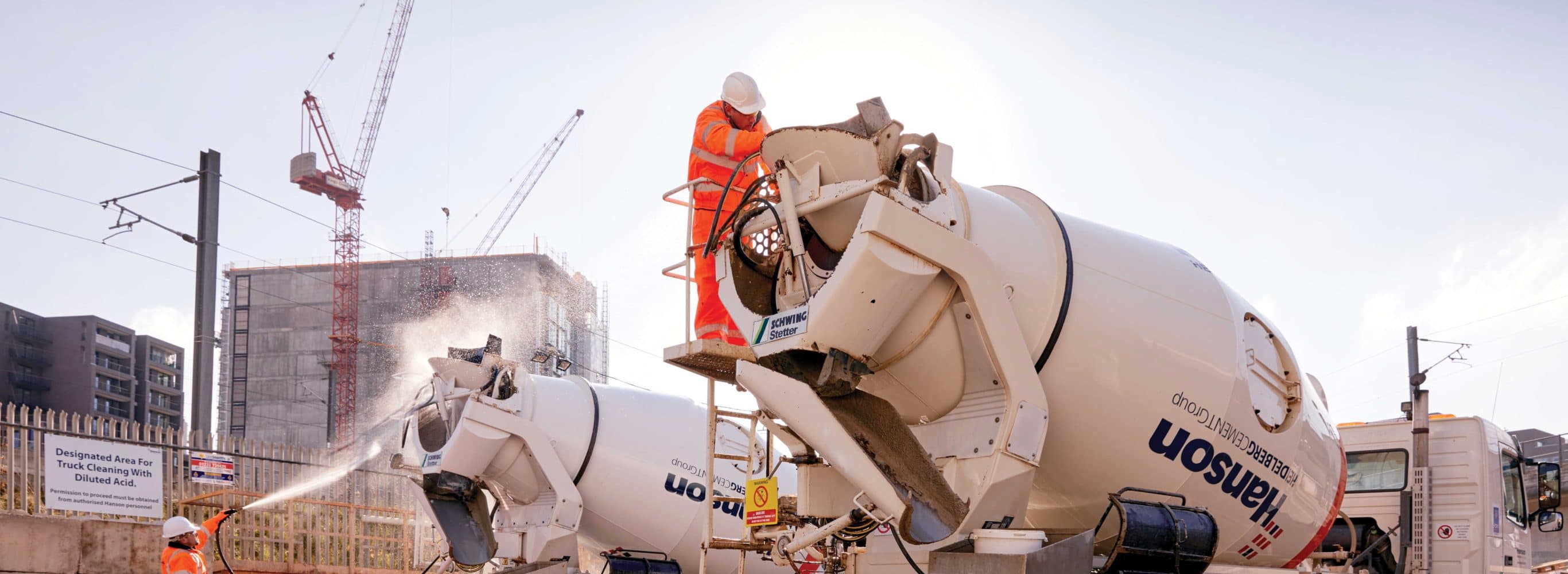Five key factors to achieving a successful construction company branding strategy

A successful brand strategy is one which unites your team in working towards the same vision. It also helps to build brand trust, and in the long term, increase sales and revenue.
In a competitive sector like construction, it’s important to get your branding right. Here, we look at five different factors to consider in order to create an effective brand strategy that is supported by your employees, and resonates with your target market.
Develop your positioning statement
Before you can begin to put your branding strategy together, you first need to decide what the underlying message of all of your communications will be.
What is it your brand stands for? What is the main message you want to convey to your customers, prospective stakeholders and employees? Perhaps you want to highlight the quality products and services you deliver, or maybe you want to focus on your expertise and levels of innovation.
Whatever messaging you choose, it’s imperative your positioning statement relates to your overall business strategy, to get those representing your business on-board.
Remember that employees are your biggest brand advocates
In order for your construction company branding to be as successful as possible, every single one of your employees must live and breathe your brand.
Communication needs to be consistent across every channel, which means employees must embrace your new tone of voice, and the key messages you want them to convey.
To ensure consistency, elect someone in your company to be the brand champion. They will be responsible for ensuring the brand guidelines are adhered to, communications are consistent, and everyone is 100% clear on what the brand messaging and values are.
However, it’s not about enforcing this on your staff. Instead, focus on making them excited about being part of the new brand. The more positively engaged they are, the more likely they are to get involved – from speaking positively about your brand, to sharing content, and embodying your key messages. Producing a ‘brand handbook’ for employees can help with this, giving staff a quick reference.
Focus on your audience
While the construction sector may be notorious for previously using traditional branding and marketing techniques, times have changed. Digital opportunities have opened up so many more avenues in how you – whether you’re a builder, architect, engineer, manufacturer or materials supplier – can communicate with your audience, in both a B2B and B2C context.
When developing your brand strategy, it’s imperative your audience is at the heart of it. Speak with customers and prospects to see what it is they look for in a brand, and then develop your strategy to make them want to choose you over a competitor.
From small domestic projects to large scale infrastructure, no matter which area of the construction sector you operate in, there will be a way in which you can positively differentiate yourself from your competitors.
So, if you don’t yet know what it is your target market are looking for, then speak to them! Monitor their online activity, hold focus groups or send out surveys, so you can work out how to shape your branding strategy, to provide a solution to their needs.
Build that all-important trust
Having a strong brand can bring you many benefits – one of which is trust. However, you need to earn it.
Creating a construction company branding strategy that is focused on your customers’ needs is a great start, but you’ve still got more work to do.
Having an understanding of your various customers’ journeys will reap rewards, allowing you to identify and then more effectively tap into decision-making moments. If customers are speaking positively about you, acknowledge them, and let them know you appreciate it! It’s just as important to interact with them at the end of the journey as it is at the beginning.
Reviews are hugely powerful. 94% of customers read online reviews, and by displaying reviews, you could be increasing your conversion rates by up to 270%. Don’t assume reviews are just for the world of consumerism. In the B2B arena, they tend to appear as more formal testimonials. B2B customers are people too and are therefore also influenced by their peers.
For brands operating in the construction sector, a lot of sales are generated through word of mouth, so for you, honest reviews couldn’t be more important.
Don’t underestimate the power of content marketing
A strong content plan is an underlying factor of all successful brands. After all, it’s these pieces of content that will provide you with the opportunity to showcase your brand proposition – and it’s no different for construction companies.
Now you have an understanding of your customers’ needs, and the questions they’re asking; you can create a series of content that satisfies those needs, and answers those questions. Depending on the proposition, the customer journey can be quite protracted in your industry, therefore fulfilling customers’ needs at every touchpoint increases the likelihood of a successful transaction and consequently repeat business.
We know that building brand trust is based on your reputation. And what better way to build your reputation than through visibility? It’s a huge positive for you, for potential customers searching for questions you’re answering, and having your brand show up first on Google’s search results as opposed to your competitors.
It shows you have the authority in the area of the construction sector you work in, whether you support developers and specifiers, or provide a product or network.
So, if you haven’t already, put together a content calendar based on the things your customers are searching for. We’d also recommend outreaching them to publications that you know your customers actively read – such as Construction News, Arch Daily or Dezeen. By getting your name out more, you’re increasing your visibility and authority, which ultimately, helps to build brand trust.
If you’re in need of content inspiration, then take a look at our article on effective content marketing for construction brands.

Case study: Balfour Beatty
International infrastructure group Balfour Beatty, recently reviewed its communications, after conversations with clients, employees and stakeholders confirmed their existing branding strategy was confusing its target audience.
Their new brand strategy was based around the positioning statement of: “together we deliver”. Employees of all levels then had recorded interviews, with their ‘conversations’ used on Balfour Beatty’s new communications; highlighting everything that mattered to each individual.
Ultimately, no matter whether you’re a large player in the sector like Balfour Beatty, or a small business owner, branding will always be important, as it’s what sets you apart from the rest. The worst thing you can do is shy away from creating and implementing a brand strategy, as you’re setting yourself up for future failure.

Case Study: Remeha
We worked with commercial heating solutions company Remeha, to reposition the brand to enable it to effectively resonate with its B2B audience.
Through extensive customer research, we strengthened the brand story and developed the brand proposition, to secure its positioning as a premium heating solutions provider.
We also recreated the design aspects of Remeha’s brand, with bold typography and succinct language. The result? A clear and consistent brand that resonates with Remeha’s time-poor audience.

Final thoughts
It’s important to remember that brands aren’t built overnight. Try not to get caught up in short-term activities and tactics, because in order to build a successful brand, you need to be focused on sustainable growth and your long-term goals.
Once you’ve formulated your brand strategy, it doesn’t stop after implementation. You need to constantly monitor it: this includes checking to see employees are following brand guidelines (hence the need for a brand champion), and conversations with your customers. If your brand isn’t heading in the right direction, then don’t be afraid to step in and adjust it.
If you’d like help with creating your brand strategy, then get in touch with us today. We can also help you with brand creation, activation and insight, to ensure your brand is reaching its full potential.
Alternatively, for the latest news in marketing and branding, head on over to our Articles page.